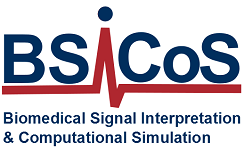-
Projects
Autonomic nervous system surrogates, cardiopulmonary coupling and respiratory parameters as predictors of successful weaning in mechanically ventilated patients
Start date
2017
End date
2018
Coordinator
Lluis Blanch
IP BSICoS: Raquel Bailón
Funding agency
CIBER-BBN
ANS-RESP-WEANING
Weaning of mechanically ventilated patients is one of the most important challenges in Intensive Care Units (ICUs). Prolonged mechanical ventilation increases the risk of complications in critically ill patients, but premature weaning is also detrimental. A wide variety of physiological predictors have been investigated to identify patients who are already prepared to breathe independently from ventilator. Currently, the spontaneous breathing trial (SBT) is considered the most accurate index to predict successful weaning. However, literature shows that around 15-20% of patients who pass SBT need to be reintubated within the next 48 hours. Weaning failure has been significantly associated with a higher incidence of ventilator-associated pneumonia, as well as an increase in mortality ranging from 25 to 50%.
Pathophysiology of extubation failure is complex, including the interaction between cardiopulmonary reserve, muscle capacity and autonomous function. Therefore, data focused only on respiratory physiology may not provide reliable guidance for extubation decisions.
The autonomous nervous system (ANS) plays an important role in the maintenance of systemic homeostasis, exercising a control in essential functions such as cardiac and respiratory function, thermoregulation and hormonal secretion. Recent clinical and electrophysiological studies have revealed a high incidence of autonomic dysfunction in patients admitted to ICU that adversely impacts on clinical prognosis and increases mortality rates, as well as in weaning success.
The present study aims to explore the power of combining respiratory parameters along with surrogate variables of ANS (specifically heart rate variability and pulse rate variability analysis), and cardiopulmonary coupling, as predictors of successful weaning in a sample of critically ill patients undergoing mechanical ventilation.
